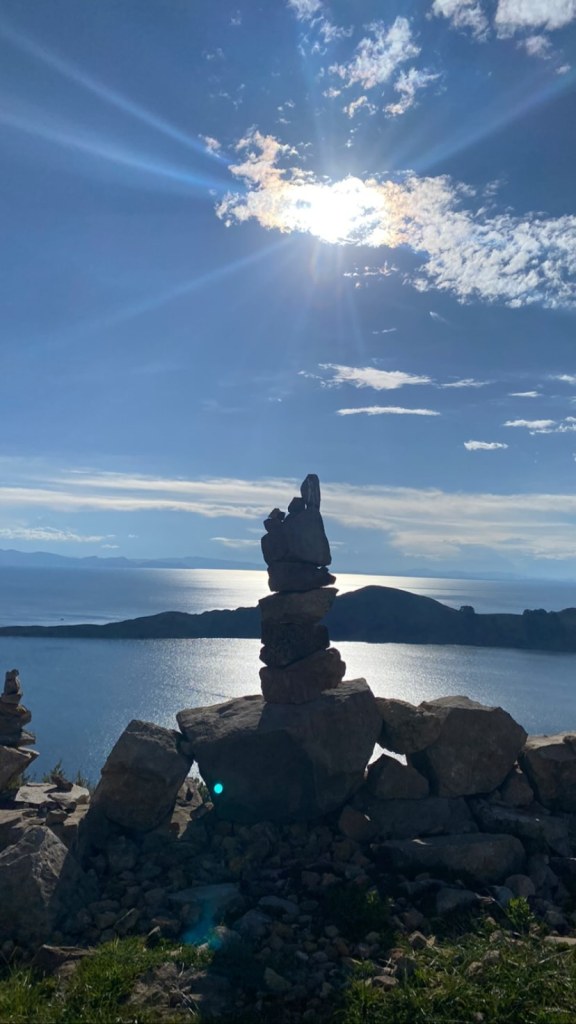Dear Ones,
Thanks to our school district’s superintendent, I came across a meaningful quote from a Prussian general who was unknown to me. Carl Von Clausewitz is his name.
His words are about the light—the inner light, that is—and are quite profound. One may think it unusual for someone involved in wars and protection of his country to be sensitive to inner workings; yet perhaps we could use Mr. von Clausewitz’s wisdom to solve some of our 21st century conflict, while paying attention to the light that shines from within and to the lava-like wisdom that silently erupts, like a tender volcano. Pushing out the Truth from the center of the earth for everyone to be immersed in It.
How uncanny that Carl didn’t die fighting on the front, but from a silent enemy he was attempting to contain: cholera.
Here are his words:
“If the mind is to emerge unscathed from the relentless struggle with the unforeseen, two qualities are indispensable: first an intellect that, even in the darkest hour, retains some glimmerings of the inner light which leads to the truth; and second, the courage to follow this light wherever it may lead.”
Topic: Following our inner light
Time: Mar 7 @ 3:15 pm Eastern Time
https://us02web.zoom.us/j/86773522300
From Wikipedia
Carl Philipp Gottfried von Clausewitz, 1 July 1780 – 16 November 1831) was a Prussian general and military theorist who stressed the “moral” (in modern terms meaning psychological) and political aspects of waging war. His most notable work, Vom Kriege (“On War“), though unfinished at his death, is considered a seminal treatise on military strategy and science.
Clausewitz was a realist in many different senses, including realpolitik, and while in some respects a romantic, he also drew heavily on the rationalist ideas of the European Enlightenment.
Clausewitz stressed the dialectical interaction of diverse factors, noting how unexpected developments unfolding under the “fog of war” (i.e., in the face of incomplete, dubious, and often erroneous information and great fear, doubt, and excitement) call for rapid decisions by alert commanders. He saw history as a vital check on erudite abstractions that did not accord with experience. In contrast to the early work of Antoine-Henri Jomini, he argued that war could not be quantified or reduced to mapwork, geometry, and graphs. Clausewitz had many aphorisms, of which the most famous is “War is the continuation of policy with other means.”
… In 1815 the Russian-German Legion became integrated into the Prussian Army and Clausewitz re-entered Prussian service as a colonel.[10] He was soon appointed chief-of-staff of Johann von Thielmann‘s III Corps. In that capacity he served at the Battle of Ligny and the Battle of Wavre during the Waterloo campaign in 1815. An army led personally by Napoleon defeated the Prussians at Ligny (south of Mont-Saint-Jean and the village of Waterloo) on 16 June 1815, but they withdrew in good order. Napoleon’s failure to destroy the Prussian forces led to his defeat a few days later at the Battle of Waterloo (18 June 1815) when the Prussian forces arrived on his right flank late in the afternoon to support the Anglo-Dutch-Belgian forces pressing his front. Napoleon had convinced his troops that the field grey uniforms were those of Marshal Grouchy’s grenadiers. Clausewitz’s unit fought heavily outnumbered at Wavre (18–19 June 1815), preventing large reinforcements from reaching Napoleon at Waterloo. After the war, Clausewitz served as the director of the Kriegsakademie, where he served until 1830. In that year he returned to active duty with the army. Soon afterward, the outbreak of several revolutions around Europe and a crisis in Poland appeared to presage another major European war. Clausewitz was appointed chief of staff of the only army Prussia was able to mobilize in this emergency, which was sent to the Polish border. Its commander, Gneisenau, died of cholera (August 1831), and Clausewitz took command of the Prussian army’s efforts to construct a cordon sanitaire to contain the great cholera outbreak (the first time cholera had appeared in modern heartland Europe, causing a continent-wide panic). Clausewitz himself died of the same disease shortly afterwards, on 16 November 1831.

